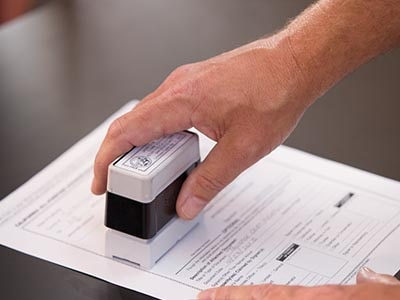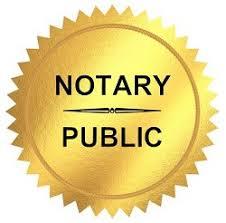Deceased Estate Management: Handling Properties and Matters After Passing
Debunking Notarial Job: Streamlining the Duty and Value of Notaries
In the elaborate web of legal documentation and verification, notaries stand as pillars of assurance and credibility. Their role, usually shrouded in secret for numerous, lugs considerable weight in guaranteeing the validity and integrity of critical papers. As guardians of validity and truth, notaries play a critical part in our culture, yet their job is not constantly totally understood. By untangling the intricacies bordering notarial methods and shedding light on the value of their acts, a clearer understanding arises of the essential duty notaries play in upholding the textile of lawful and legal arrangements.
The Background of Notarial Work
How did notarial job advance in time to end up being an integral component of lawful and service deals? The background of notarial work dates back to old human beings, where scribes played a critical duty in taping vital details and confirming records. As societies advanced, the need for a much more formalized system to make certain the legitimacy of agreements occurred. This brought about the growth of notaries, people designated by the state to work as unbiased witnesses in lawful matters.
During the Center Ages, notaries gained prestige in Europe, with their features expanding to include preparing legal papers, certifying signatures, and maintaining records. The increase of worldwide profession further highlighted the significance of notarial work in confirming agreements and agreements across boundaries.
In the modern-day age, notaries continue to play an important function in lawful and business purchases by verifying identities, verifying the credibility of files, and avoiding scams. Their role in accrediting the legitimacy of agreements adds a layer of safety and security and depend the ever-evolving landscape of business and regulation.

Tasks and Responsibilities of Notaries
The historical advancement of notarial job from ancient civilizations to the modern-day period has formed the distinct duties and duties that notaries maintain in lawful and service transactions today. Notaries play a crucial function in verifying the credibility of files and the identification of notaries. One of their main responsibilities is to witness the finalizing of essential files, such as contracts, acts, and wills, to make certain that all celebrations are getting in into contracts purposefully and willingly. Notaries likewise confirm that signatures are of audio mind and not under discomfort or coercion.
They certify copies of original files, supplying guarantee to establishments that the copies are real reproductions of the originals. Generally, the pop over to this web-site obligations and duties of notaries are essential in protecting the stability and legality look at more info of numerous papers and deals - Deceased Estate.
Notarial Certificates and Signatures
Exemplifying thorough focus to information, notarial certifications and trademarks serve as vital components in validating the authenticity of lawful files. Notarial certificates generally include critical info such as the day of notarization, the names of the signatures, a summary of the record, and the notary's main seal. These certifications provide a clear record of the notarial act, ensuring that the paper can be quickly determined and mapped back to the notary who looked after the process.
Signatures play a critical duty in notarial job, as they symbolize the arrangement and authorization of the events involved. Notaries carefully witness the finalizing of files to validate the identification of the notaries and verify that they are authorizing of their very own free choice. By attaching their main seal and trademark to the file, notaries certify that the required treatments have been adhered to which the file is enforceable and valid.
Essentially, notarial certificates and signatures are the characteristic of recommended you read credibility in lawful purchases, offering guarantee to all celebrations entailed that the documents are legitimate and binding.
Importance of Notarial Acts

Notarization Refine Clarified
Discussing the notarization process offers quality on the crucial steps included in verifying legal documents. The notarization procedure commonly begins with the private presenting the document to a notary public. The notary after that verifies the signer's identification with appropriate identification techniques. As soon as the identity is verified, the notary ensures that the private authorizing the file does so willingly and with no threat.

Final Thought

Notarial certificates generally contain important info such as the date of notarization, the names of the signatures, a summary of the document, and the notary's main seal. These certifications offer a clear record of the notarial act, making certain that the record can be quickly recognized and mapped back to the notary that supervised the process.
By attaching their official seal and signature to the paper, notaries certify that the needed treatments have actually been complied with and that the record is valid and enforceable.
By verifying the identity of the notaries, validating their willingness to enter into the agreement, and accrediting the day and area of the finalizing, notaries play a crucial duty in maintaining the credibility of legal records.After the file is signed, the notary will affix their main seal or stamp onto the document.